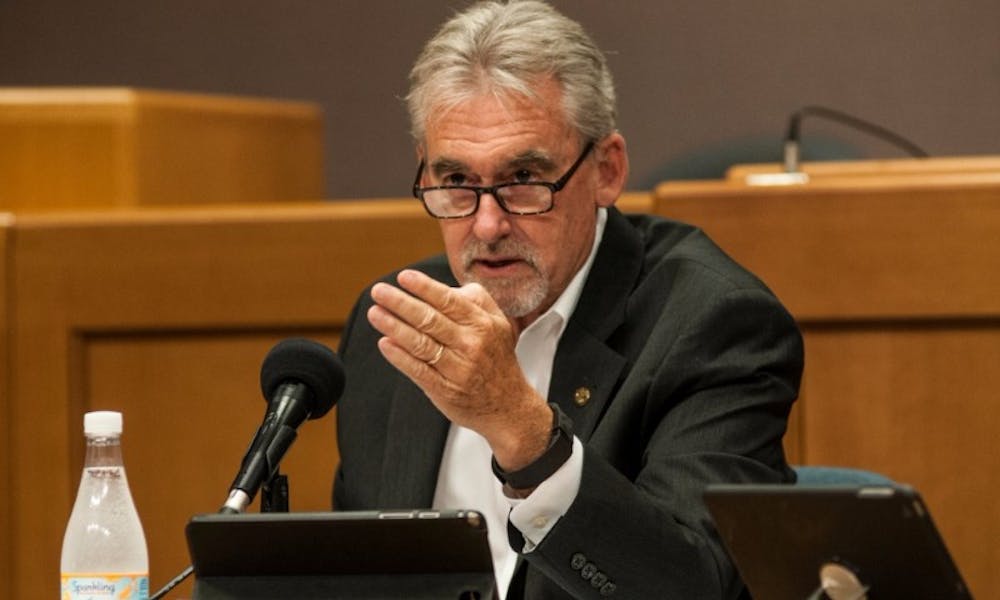A new bill has been introduced to the Michigan House that would limit the power of city governments to implement income taxes.
Under House Bill 4952, proposed by Rep. Pamela Hornberger (R-32), local governments cannot impose an income tax on nonresidents.
East Lansing has an income tax proposal on the November ballot. It is a dual proposal, with the option to lower property taxes if the income tax passes. The proposal would place a 1 percent income tax on residents and a 0.5 percent income tax on non-resident workers.
“There are a lot of reasons to oppose (the bill),” Mayor Mark Meadows said. “It interferes with the ability of communities to actually receive money from people who use services but don’t necessarily support them through property taxes or other taxes.”
Local communities should be able to create the revenue they need, Meadows said.
Since the income tax is on the November ballot, it’s up to the community to decide, he added.
“This is a fair way for us to proceed and the interference from the legislature is so typical,” Meadows said. “They want to dictate the local communities and the citizens within those communities, how they should do things.”
Possible exemptions
During the East Lansing City Council meeting Tuesday evening, the council amended the proposed income tax exemption to add an exemption of $5,000 per person.
The exemptions must be discussed at a public hearing, before the council can implement them. The hearing will be held at city council meeting on Oct. 10.
A $5,000 exemption will mean most MSU students are not impacted by the income tax, as the average amount a student makes a year is $4,000, Meadows said.
“I don’t think it’s overly generous,” Meadows said. “I think it’s just looking at the reality of there are many low-income students at Michigan State as well as in the community in general.”
Support student media!
Please consider donating to The State News and help fund the future of journalism.
Discussion
Share and discuss “New House bill aims to limit city taxes, council aims to exempt most students” on social media.







